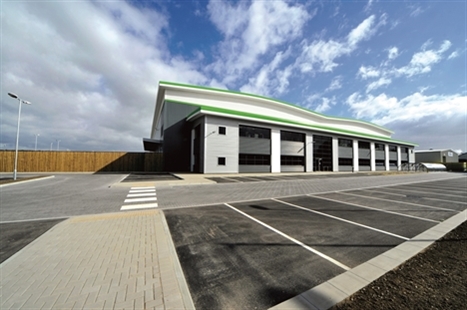23.04.15
In business
Source: PSE - April/ May 15
Many local authorities have been exploring the use of joint ventures and subsidiary businesses in recent years, either to shift costs or as a potential source of revenue. But Commercial Services, wholly owned by Kent County Council, has been around for nearly 70 years, and is today a £400m business across four divisions. PSE spoke to its executive chair, Guy Parsons.
In the early days of the Coalition government, there was a major push on ‘open public services’, which forecast a world of mutuals, social enterprises, joint public-private ventures and traditional businesses delivering far more services, with councils becoming specifiers and commissioners rather than providers.
After a slow start, there have indeed been many ‘spin-outs’ from the public sector during this Parliament, plus far more ‘traditional’ outsourcing. Contracts worth about £88bn were let in the last four years, double the level of outsourcing in the four years before.
But some councils are moving beyond simple outsourcing, and are embracing the world of trading and business, seeking to raise their own revenue.
Kent County Council (KCC) has been receiving income from its wholly owned Commercial Services business for years. It traces its history back to 1902, when the council’s education committee set up a stores sub-committee to buy stationery and books in bulk, and it was put on a more formal footing nearly 70 years ago. What is now the Education Supplies division of the business last year moved into a purpose-built 100,000ft² warehouse between the M2 and M20.

As well as Education Supplies, Commercial Services also has Energy, Recruitment and Direct Services divisions, the latter of which provides all manner of services from landscaping to inspection to mobility equipment. These are a collection of smaller businesses that used to be operated directly by KCC, which transferred them to Commercial Services.
Outside of Commercial Services, the council also owns Kent Legal Services, which the Local Government Association (LGA) calls “the leading exemplar and most successful trading operation of its kind anywhere in the country” when it comes to legal services delivery, and Kent Scientific Services, one of 18 public analyst laboratories in England.
A ‘significant and growing’ financial return
Each of Commercial Services’ four divisions has a managing director with an executive team under them, but there are also shared services for things they need in common, such as finance, IT and HR.
Today, the businesses provide “a significant and growing” financial return to KCC, selling and brokering services worth more than £600m a year and employing more than 700 staff.

Executive chair Guy Parsons, whose private sector background includes having run Travelodge hotels and the TGI Fridays restaurant chain, took up his current role a year ago, having originally joined as non-executive chair in September 2013.
He told PSE: “It is a much bigger organisation than most people realise. We’ve managed to prove for KCC that we can effectively provide a number of services for them, and we’re able to pass back any profits that are made in the form of a dividend, which they can use to offset their council tax. Other councils could use the same sort of model, absolutely, to outsource services and get somebody to do it for them in a way that actually perhaps can bring them some income.
“We are in conversation with some councils at the moment to set up a JV [joint venture] with them, using the expertise we’ve got, so that effectively we take away their costs, and in the future can provide them with an income stream.”
Teckal benefits
A major restructure in 2012-13 saw the organisation restructured, going from 26 different business units to the four divisions of today.
Part of the business is set up as a so-called ‘Teckal company’, in reference to a legal case that established an exemption from normal EU procurement rules. It lets public authorities buy services from a company as long as the authority has a high level of control over the company, and that the company passes the ‘function test’: namely that the ‘essential’ part of its activities are carried out for its public sector owners. This avoids the need for full procurement processes to be run, with all the time and costs that implies. The spirit of this exception to the normal rules has been reaffirmed in the new EU procurement directive 2014/24.
Asked how KCC – as a corporate body and a democratic body – oversees Commercial Services, Parsons explained: “We have a shareholder board that this business reports into. There are the normal protocols in place that one would expect of any subsidiary company, such as financial sign-off levels above a threshold that have to go to the shareholder for a final decision. Those decisions have to make sense for them as a shareholder and for us as a business.
“Clearly the Teckal company has to be treated in a different way: it has to be treated as a very ‘close’ part of the council. We use the internal audit function of KCC to make sure the risks in the business are managed in an appropriate way.”

Values
About half of Commercial Services’ staff used to be directly employed by the council, but were ‘TUPEd’ across, meaning their rights and terms were protected under the Transfer of Undertakings (Protection of Employment) Regulations.
“They still have a strong affinity with KCC,” Parsons explained. “When you talk to those individuals about what is important to them, and why they joined KCC, you hear a lot about values – the trustworthiness of the business that they’re working for, the way in which they’re managed, the ethical basis on which decisions are made.
“The values this business has really do resonate with the public sector, with our owners, and I think would resonate with other public sector operations as well.”
He admitted that if it was a purely private sector business, Commercial Services might be able to take some decisions on investment and policy that its public sector ownership restricts. “But, the values that are important to this organisation and its employees preclude us from doing some of those things anyway,” he added, giving investment from a tobacco company as an example of something it wouldn’t accept.
“We understand the public sector better than lots of private sector businesses might do, because we are owned by the public sector.”
Not every aspect of its business is for public sector customers exclusively. Its energy business, for example, now has a private sector facing part too, called Lumina.
Parsons said: “Customers like the fact that we’re owned ultimately by the council. They know that when we’re talking to them, we’re not there to rip them off, we’re absolutely there to make sure that we give them the best possible service.”

Replicating its success
Parsons said: “The businesses have great opportunities in front of them, they’re all in growing sectors. Our expectation is that over the next five years, the Commercial Services business and the brands within it will continue to grow, both on the public and private sector side.
“There are a lot of companies our customers could outsource to. We’ve got to make sure we continue to tick every box and make sure that people come to us, because they’ve heard great things about the way we look after our customers.”
Commercial Services may have a uniquely long history, but plenty of other authorities have explored similar models. These include Essex Cares; the Norse Group, a holding company owned by Norfolk County Council, bringing together trading companies turning over more than £250m a year; Solutions SK in Stockport; Swindon Commercial Services; and Ubico, which provides environmental services for its owners Cheltenham Borough Council and Cotswold District Council.
As the LGA puts it: “Across councils, officers and members are becoming more and more commercial in their acumen, outlook and skills to meet future funding challenges. Trading (i.e. to generate efficiencies, surpluses and profits) and charging (i.e. to recover the costs of providing a discretionary service) are important options on the menu of innovative ways of working to meet local needs through delivering value for money, sustaining communities and providing choice.”

Mark Johnson, head of public services at specialist law firm Geldards LLP, made a similar point in his recent article on JVs for PSE: “Joint ventures are emerging as a popular way for local authorities to deliver services while responding to tough budget cuts.”
Parsons told us: “In the last six months, I’ve had at least three approaches from [other public bodies] wanting us to explain what we’ve done and why this model is successful.
“I would say to all of them that of course it is possible to replicate Commercial Services in terms of the way it’s been set up – but the business has been going for a number of years, and the really important thing is making sure you have the right management skills in the business. This is a business of scale, close to £400m a year, and if this were a totally private company you would expect to have people with the right level of experience and expertise running these businesses. What’s also important is making sure you’ve got a good balance of people from the public and private sectors running the business, because both sets of individuals bring different skills.
“Of course, [others] can [replicate] it – but it’s not just a case of creating a private company or Teckal company and transferring the staff over. That’s the beginning of the journey.”

Tell us what you think – have your say below or email [email protected]